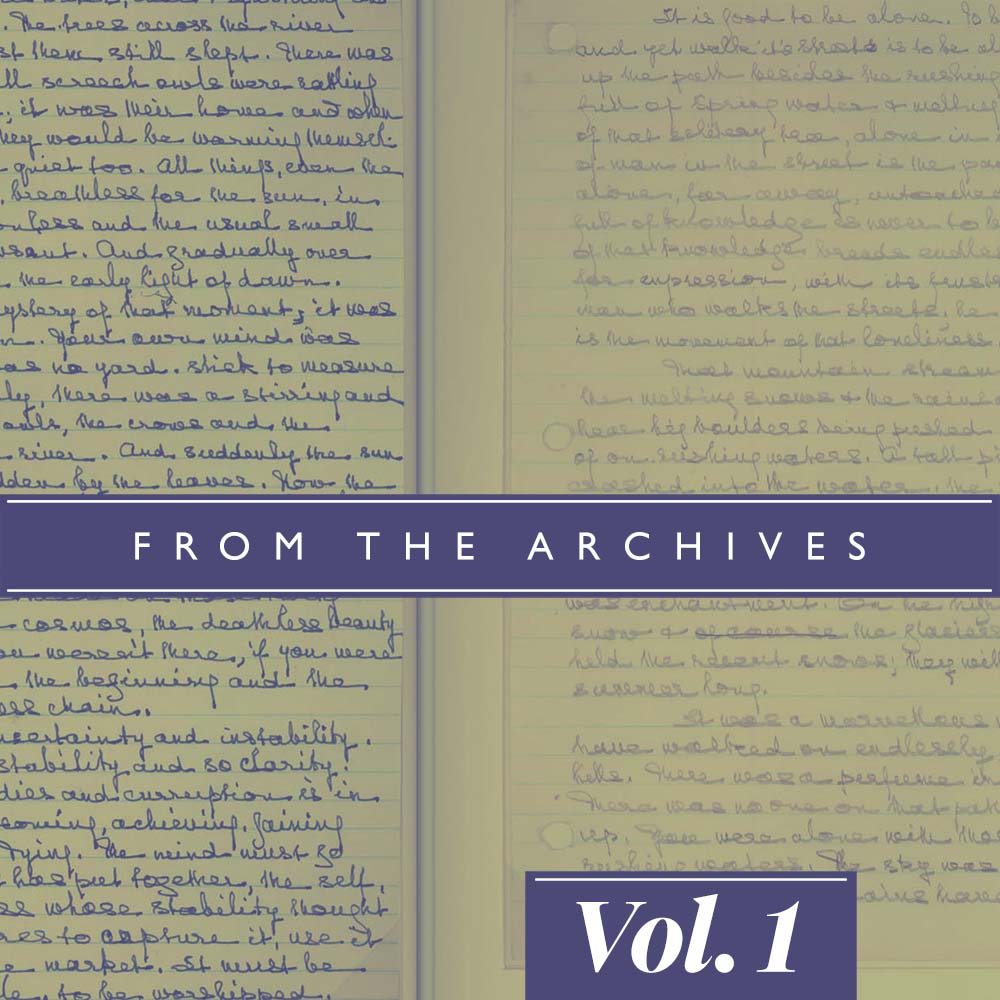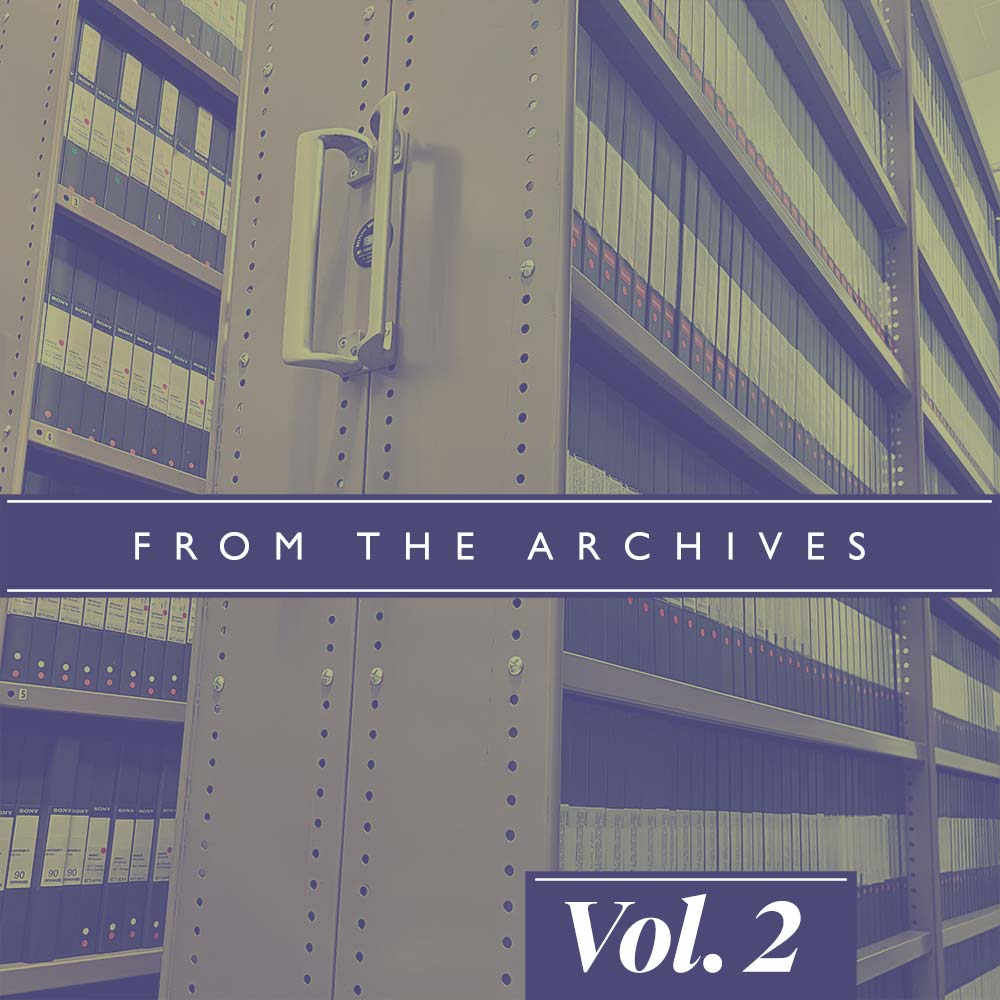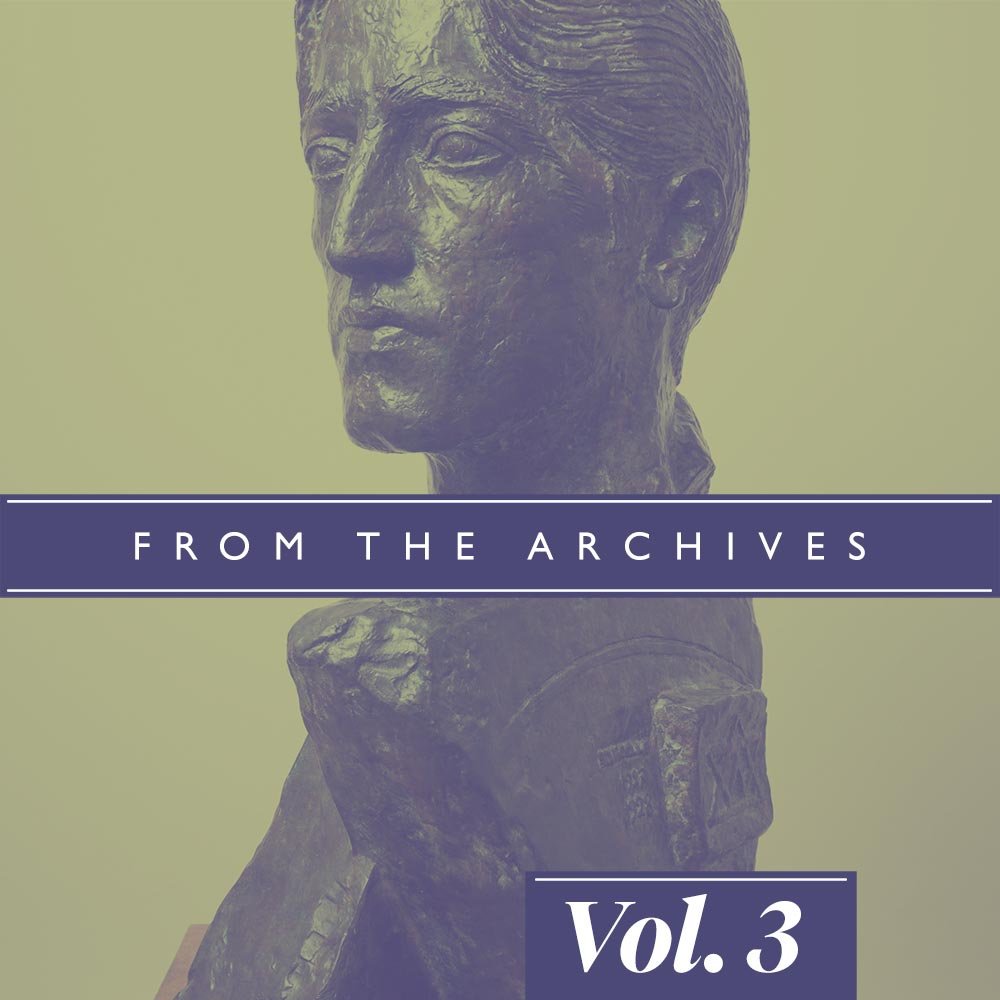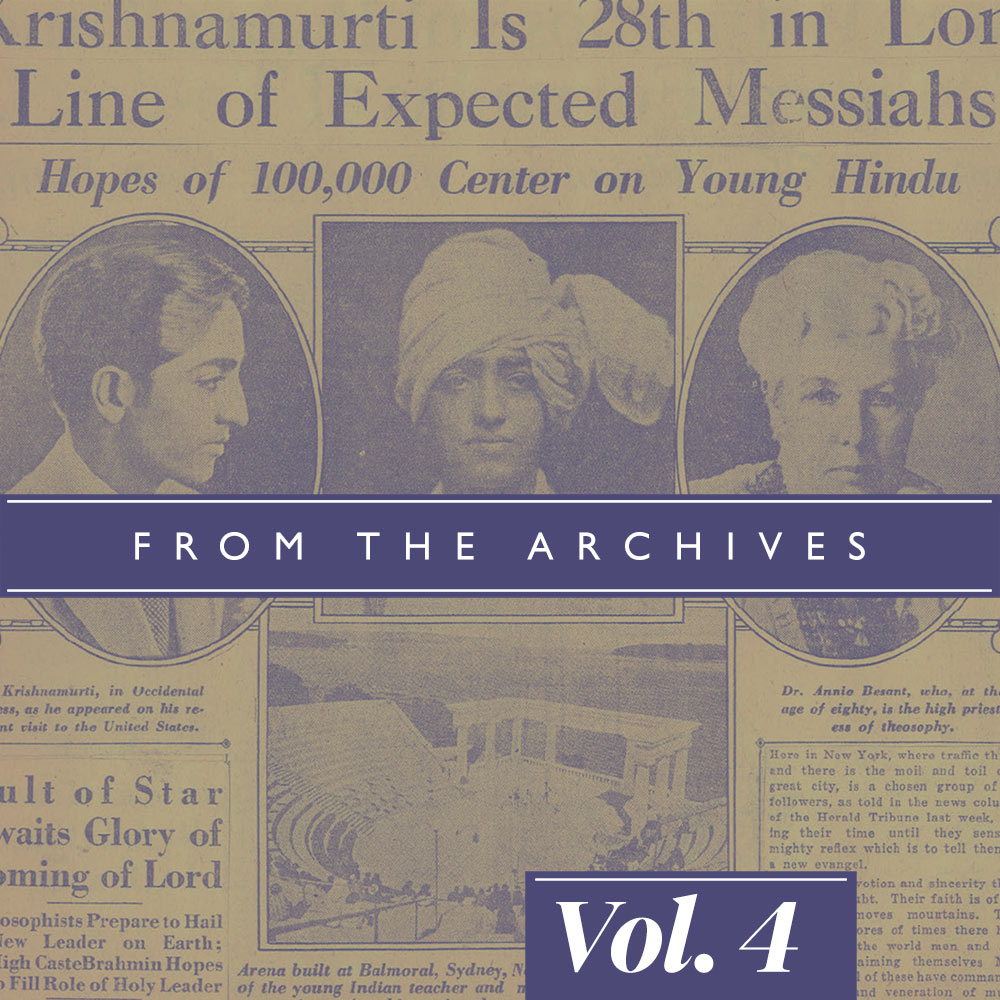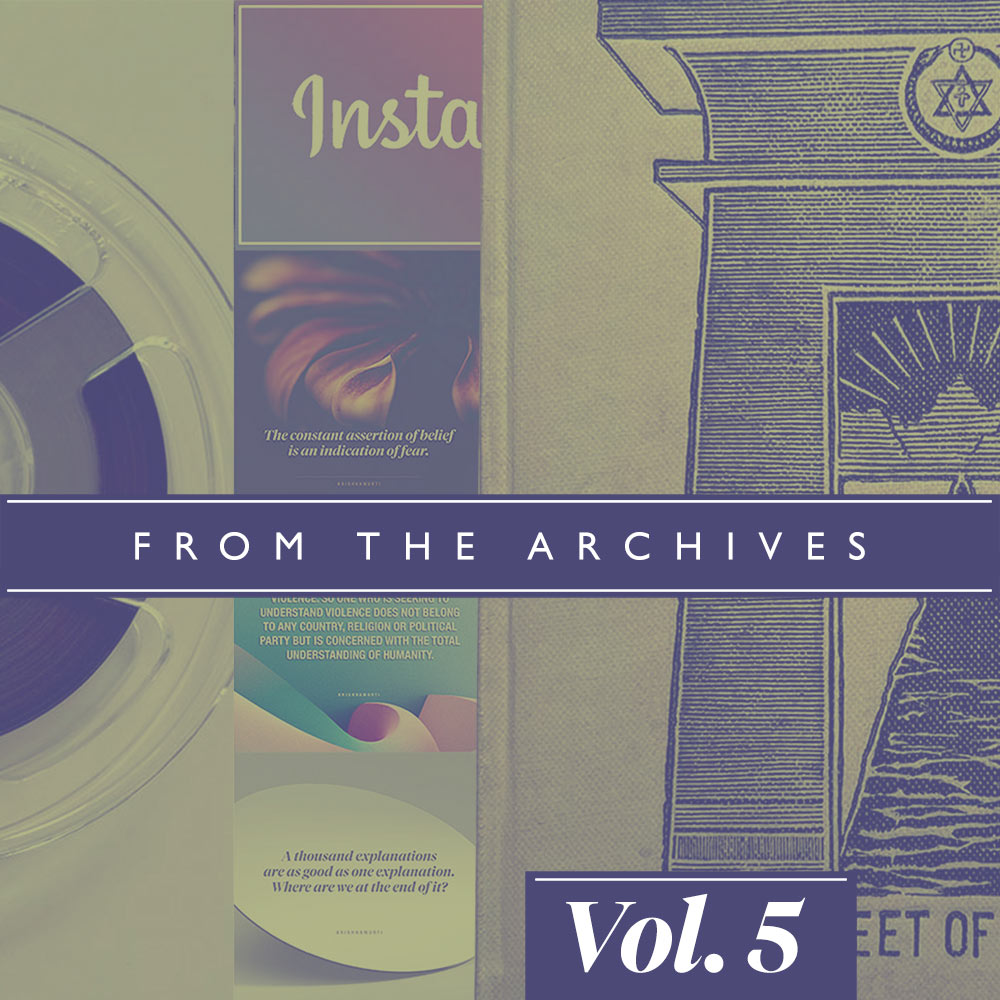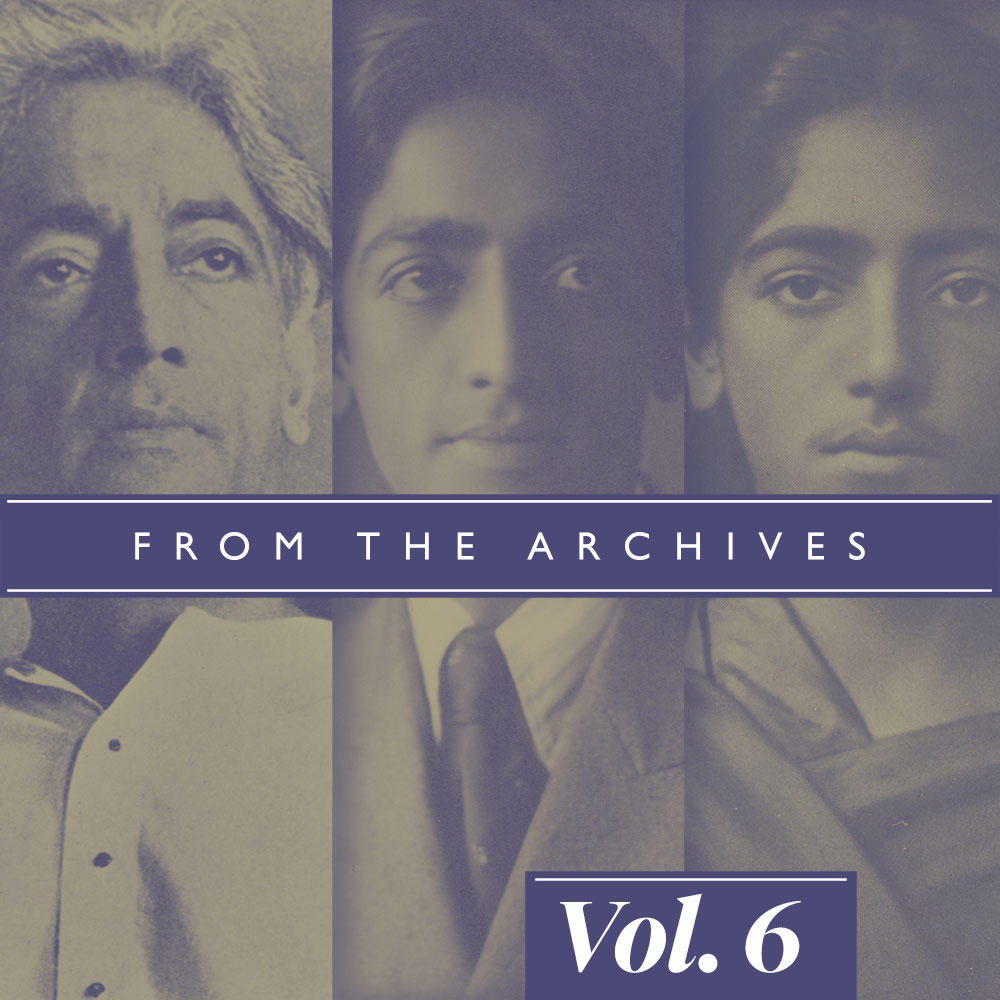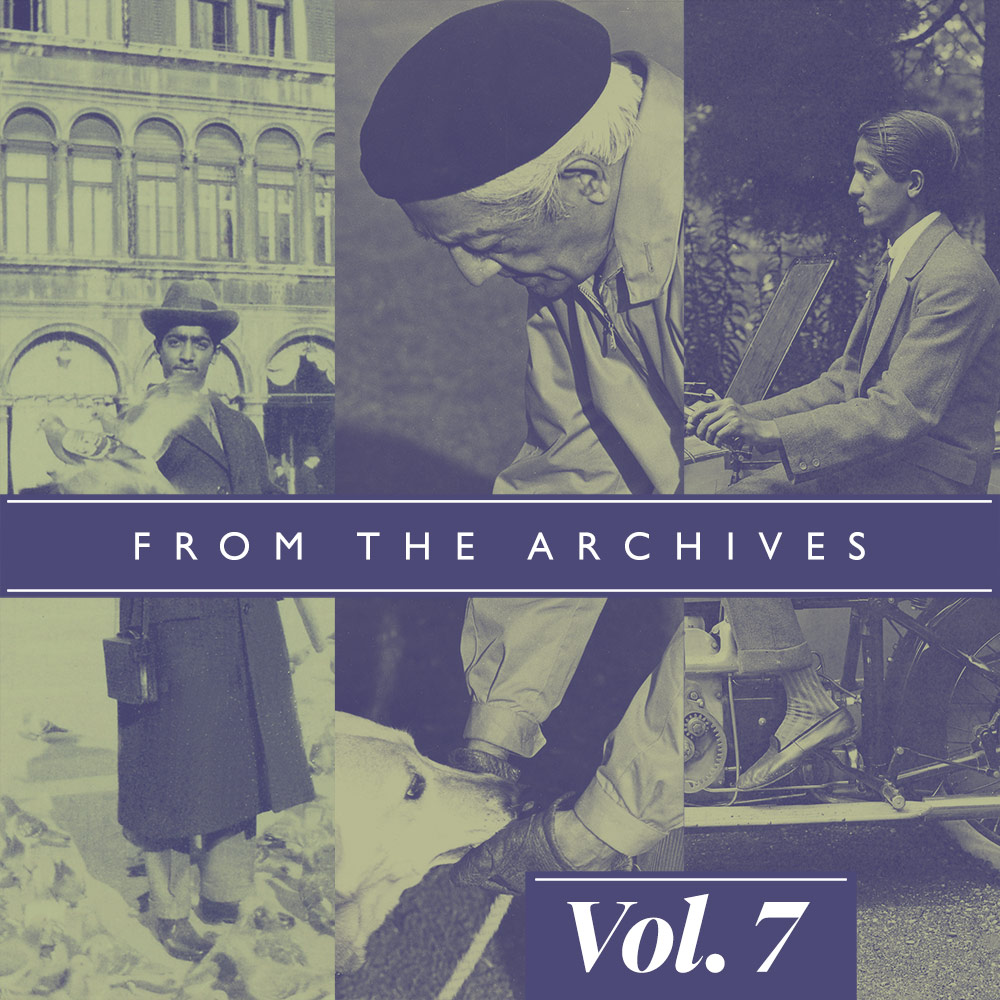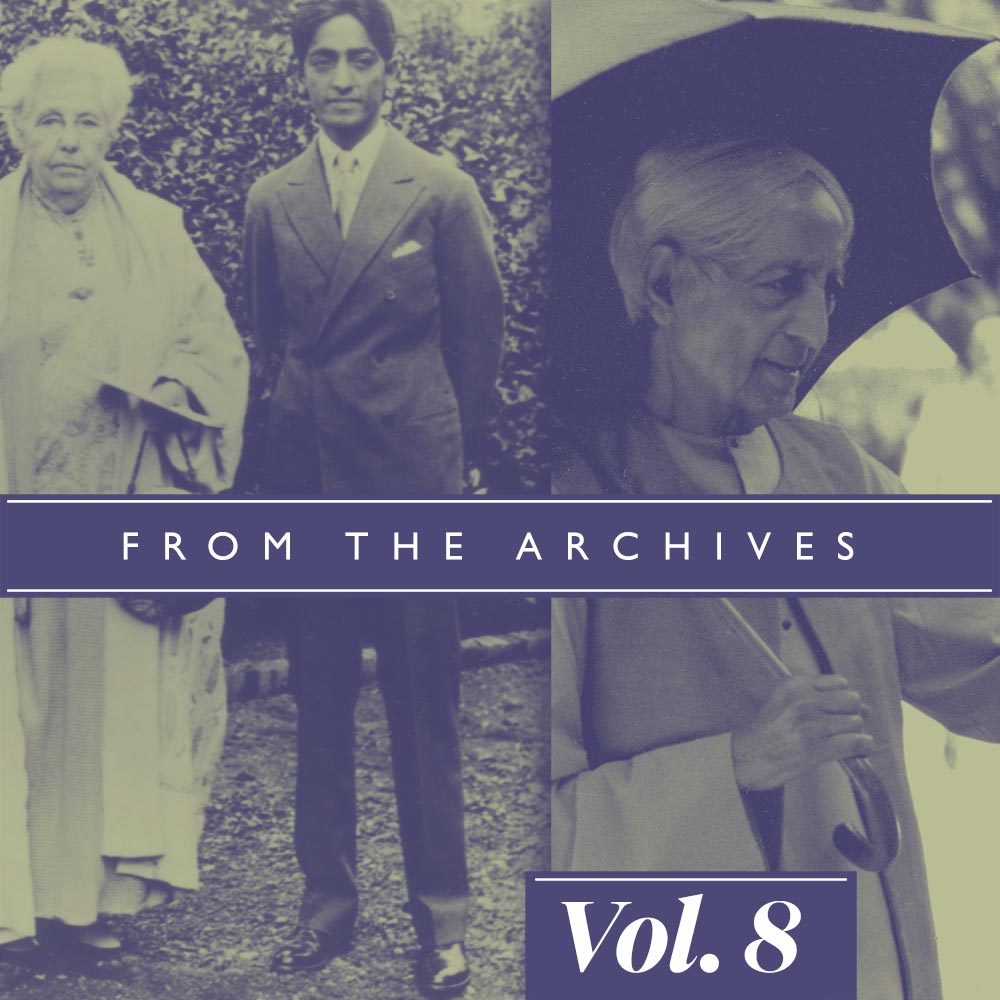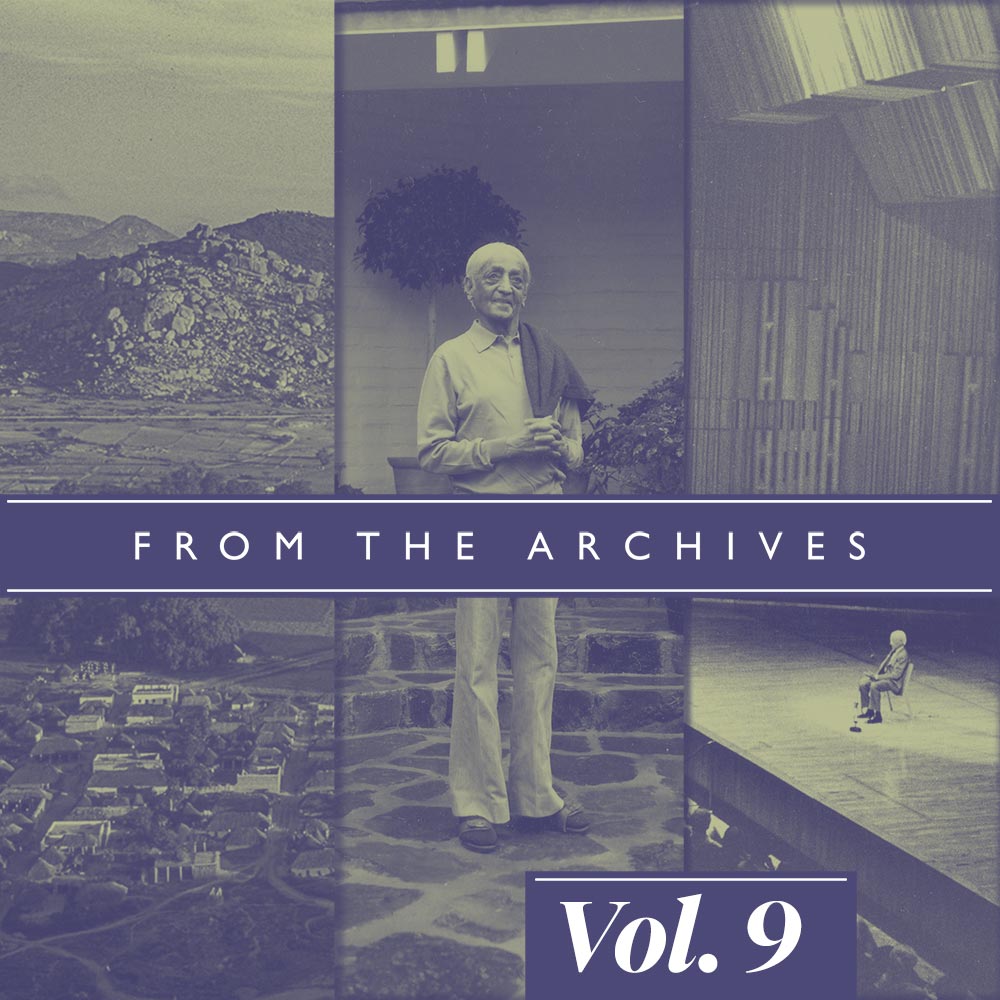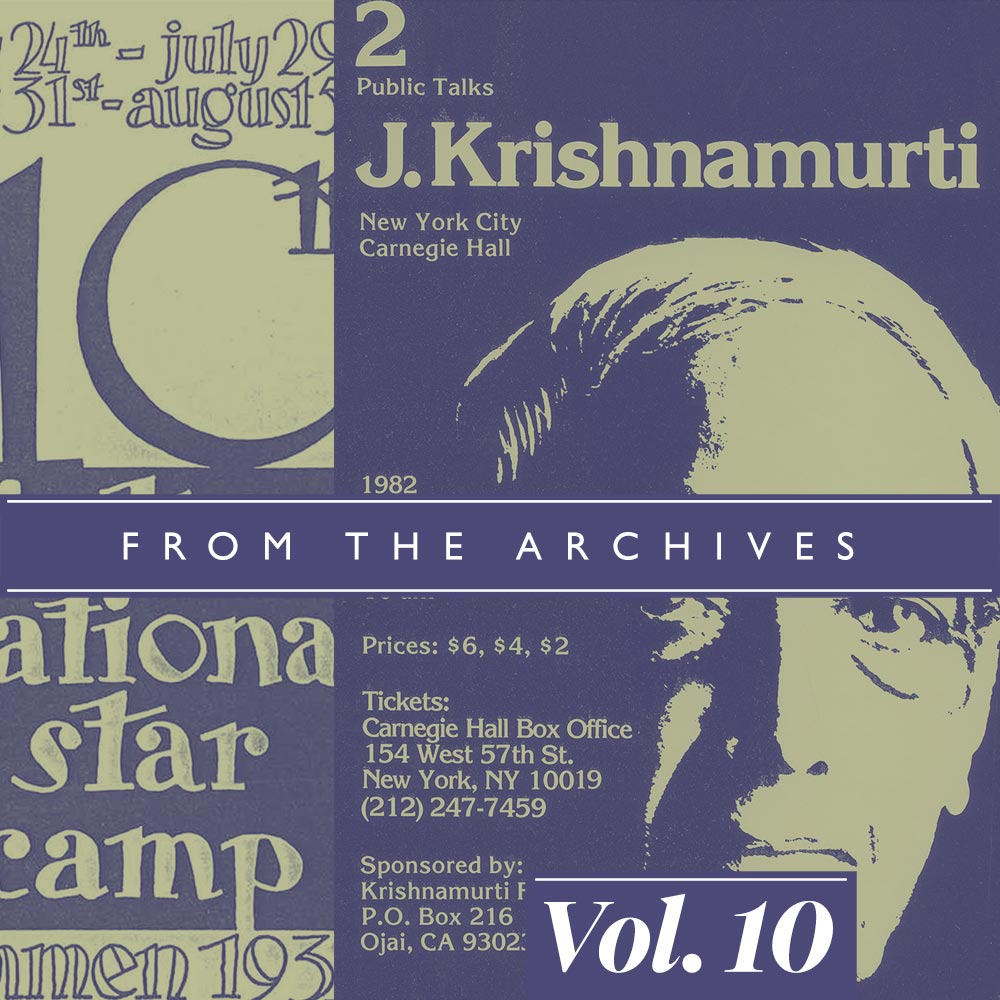From the Archives
The Krishnamurti archives were established to ensure Krishnamurti’s legacy continues for centuries to come. Located in a purpose-built vault at the Foundation offices, the Brockwood archives contain hundreds of video recordings, thousands of audios, transcripts, books, photographs, letters and newspaper articles. The Foundation works in unison with the Krishnamurti archives in Ojai and Chennai to ensure the safekeeping of these unique materials. The articles below highlight rare and interesting archive items, and the efforts involved in preserving Krishnamurti’s teachings.
Krishnamurti Manuscripts
The majority of published material by Krishnamurti has been sourced from his hundreds of public talks. Two noticeable exceptions are Krishnamurti’s Notebook and Krishnamurti’s Journal. These have become classic books, the former perhaps his most personal and ‘mystical’ book, giving the reader a glimpse into Krishnamurti’s inner life and ‘The Process’. But what are the origins of these well-known books? Here we share some information about the handwritten manuscripts and some examples of their pages.
Digitising Krishnamurti
During his lifetime, Krishnamurti’s teachings were recorded using mostly analogue methods, from stenographer notes to audio recordings on wire and then tape, to film and early videotape formats. The supplementary material – letters, photographs, articles, etc. – was also on paper or photographic negatives: again, analogue. As technology advanced, the Krishnamurti Foundations were able to start utilising digital technology. This began with word-processed transcripts in the 1980s and pulse-code modulation audio recordings. This article looks at the transition from analogue to digital archives.
Krishnamurti Busts
Krishnamurti met the renowned sculptor Antoine Bourdelle in early 1927, through a mutual friend. Bourdelle requested Krishnamurti sit for a statue to be made. He sat for eight days in 1927 and returned in 1928. The resulting bust of Krishnamurti is at the Musée Bourdelle in Paris and it is considered to be one of his finest works. This article expands upon the relationship between the two men, and introduces a 21st-century companion piece.
Krishnamurti in the Media
This fourth edition of From the Archives highlights articles from eight decades of the 20th century, revealing how the media and society perceived Krishnamurti and his teachings. There are errors and inaccuracies, and a tendency to label and define, but there is also genuine questioning, insightful observations, the narrative of an extraordinary life, and his work contextualised.
Krishnamurti Release Formats
Today, those with an internet connection have the wealth of Krishnamurti’s teachings available to an extent never before possible. This ease and depth of access would have been impossible to imagine when Krishnamurti began his public talks in the 1920s, and even when they ended in 1986. Illustrated with photographs, this article looks back at the way Krishnamurti’s teachings were made available before the internet, and outlines the evolution of dissemination over the years.
Krishnamurti Photographs Part 1
The Krishnamurti Archives include thousands of photos of Krishnamurti and the people and places he was associated with. Many well-known photographers, including Edward Weston and Cecil Beaton, captured Krishnamurti’s image. A long-term project of the foundation archives has been scanning and cataloguing prints, negatives and slides at high resolution for preservation and to make the collection easier to reference. This article highlights some of these photographs, taken throughout Krishnamurti’s life, from the late 1800s to the 1980s, focusing on portraits.

